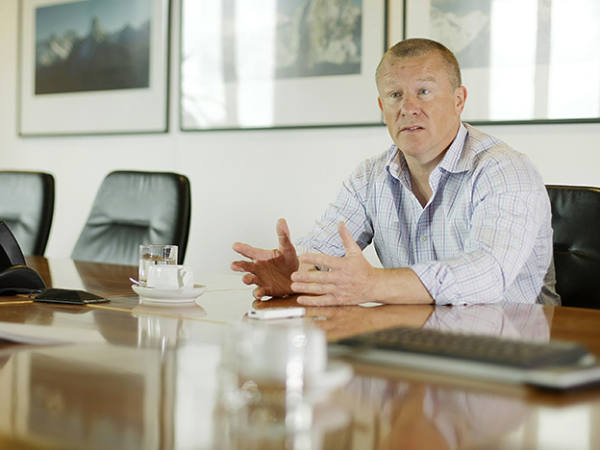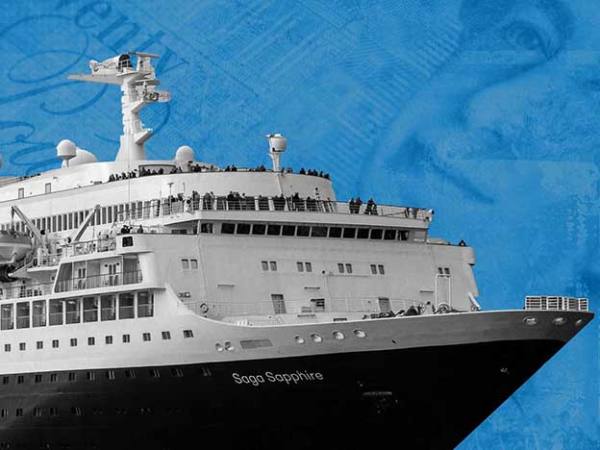How can fund managers in a London office possibly know what's happening on the ground in key emerging markets? Slim Feriani, chief executive officer of Advance Emerging Capital, doesn't think they can - which is why he outsources the running of funds to local fund managers with established track records. It's an approach he's sticking with despite a change in ownership at Advance - it was acquired last October by Dubai-based Rassmal Investments, a move which should give Advance direct access to the important Gulf region.
The business, now 12 years old, will continue to build on what Slim Feriani, chief executive officer of Advance Emerging Capital, describes as "strong foundations".
"We will continue to be a niche player - we don't want to be big - but we will be opportunistic," says Dr Feriani. "When Advance Developing Markets was launched in 1998, it was niche because there were not many emerging markets funds with a fund of funds structure. Even now, only a few emerging markets funds have this structure.
"If we see an idea that is niche, makes sense, is early stage and can add value - we will do it. There are already a number of BRIC (Brazil, Russia, India, China) funds, for example, so we could not add to that area in the same way."
This is the thinking behind Advance's latest project - a single country Brazil fund of which there are few available to UK investors - due to launch this month. However, in keeping with its fund of funds philosophy, Advance will not directly run it, but will outsource the management to Brazilian fund manager Leblon Equities.
"This is an excellent local team with a long track record in what is the most attractive emerging market today," says Dr Feriani. "We have known the managers for years."
Dr Feriani adds that the fund will be focused on an area where big investment houses cannot easily add value - small and mid caps. "While we want a manager to have enough scale, we think small is beautiful - we like boutiques. Leblon is a typical example of the sorts of managers we use - it is employee-owned and has just under $200m in assets under management, which means it can continue to invest in consumer and domestic-orientated stocks rather than being forced to buy large caps such as Petrobras, which would be the case if it had $5bn under management," he explains.
The Advance Brazil Leblon Equities fund will be available to investors directly if they can commit a minimum of £20,000 or as an underlying holding in Advance's emerging markets funds of funds. Currently, Advance has around £15m allocated to the iShares MSCI Brazil Index exchange-traded fund (ETF), but around two-thirds of this is being reallocated to the new fund.
"We use ETFs opportunistically, but are not big supporters of passive funds," says Dr Feriani. "Active fund managers add value."
He says iShares Emerging Markets ETF, for example, underperformed its benchmark, the MSCI Emerging Markets Index, over 2009. The ETF returned 81.97 per cent against 85.29 per cent for the index.
However, Dr Feriani admits that a huge advantage of ETFs is that they offer instant liquidity at a low cost. "For example, in downturns it is very easy to get out. It was very useful to be able to use the Brazil ETF to top up exposure as there weren't many active fund managers we liked. But ETFs are not a source of added value and we do not want to hug the index," he adds.
The final frontier
Dr Feriani says Advance favours a fund of funds structure because emerging markets are so diverse they need to be exploited by specialist fund managers investing in their specific regions. "We could not be specific experts on everything, so we think taking the fund of funds approach is less risky. But we want to stay in charge of the asset allocation.
"We can take a global view of the world which a local manager could miss."
He adds that the underlying funds in Advance's funds of funds are typically not suitable for retail investors - "so we provide what is inaccessible to them, in particular frontier markets".
Frontier markets countries are generally defined as being less developed and liquid than emerging markets. There are between 25 and 30 countries in the FTSE and MSCI frontier markets indices, examples including Bahrain, Jordan and Nigeria. Advance launched its Advance Frontier Markets Fund two years ago.
"The frontier space is very appealing as these are under-researched and under-developed, but the opportunity is now - not in five to 10 years' time," says Dr Feriani. "For example, in 1998 when this company was set up, Russia, now a major emerging economy, was considered a frontier market."
Advance typically has between 30 and 50 funds in the underlying portfolios of its funds of funds which Dr Feriani says are selected from a universe of around 3,000 funds. This is narrowed down by a selection of what he describes as "best of breed" managers from around the world.
Over the years, the team has built a great knowledge of many fund managers and currently uses the funds of around 70 managers. When selecting funds managers, as well as assessing them via quantitative criteria such as their track record (Advance likes a 10-year record), and what they could achieve going forward, they look at qualitative criteria, in particular the people involved in the business. This usually involves more than 400 manager meetings a year.
| Slim Feriani Curriculum Vitae |
|---|
Slim Feriani is chief executive officer of Advance Emerging Capital. He joined the company in February 2005 from Martin Currie Investment Management where he was director and senior portfolio manager. Prior to this, he was Middle East and North Africa senior investment analyst at investment bank Nomura. Dr Feriani has an MBA and PhD in Finance & Investments from The George Washington University where he was professor of finance and international finance between 1989 and 1996. |









